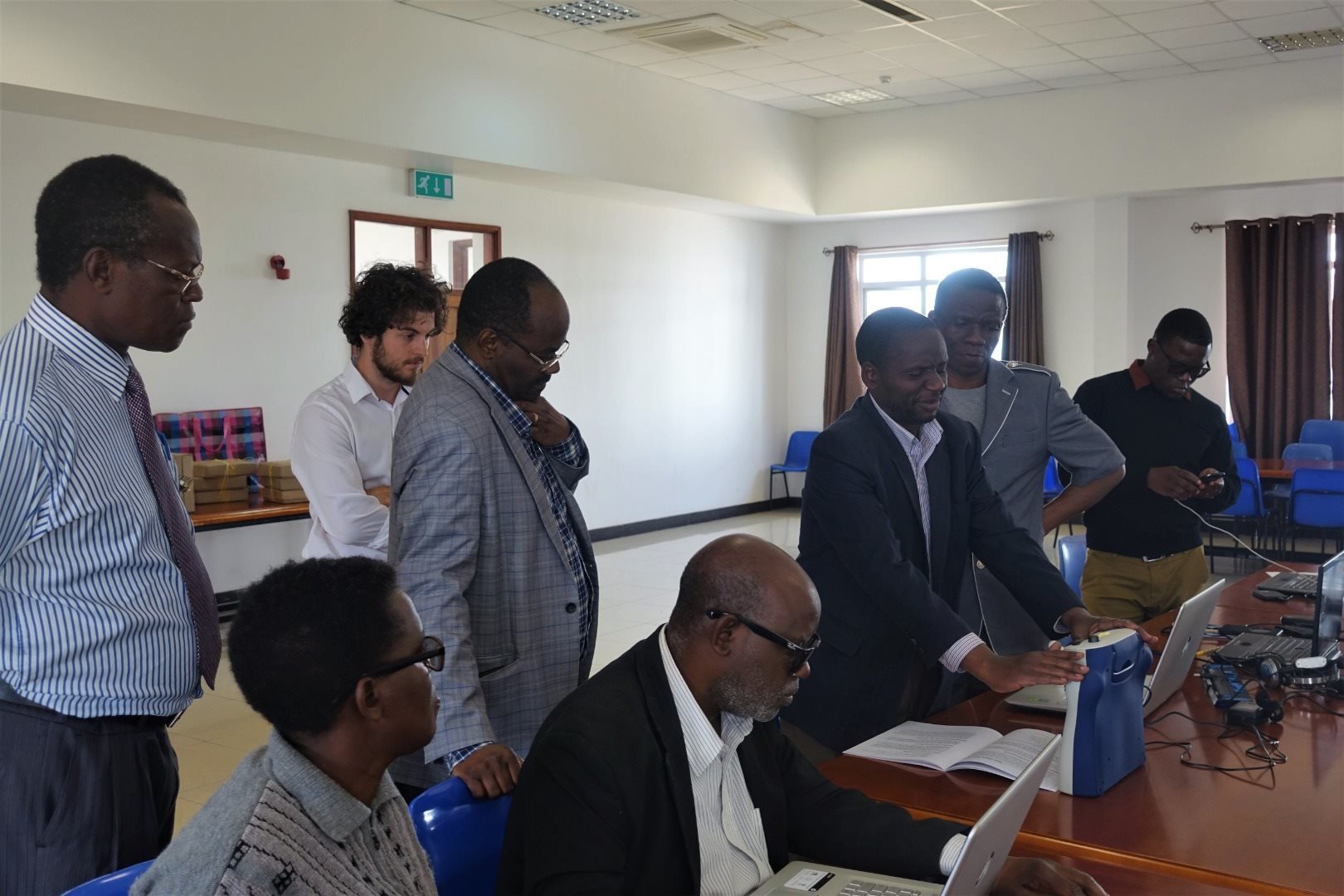Technology brings inclusivity within sight
Cambridge Education’s Attiq Sadiq and Tom Blower celebrate the difference that office-based technology is making for their sight-impaired colleagues in the Government of Tanzania.
In the last decade, Tanzania has made great strides in improving both access and the quality of education. However, if Tanzania is to achieve its ambition of middle-income status by 2025, then the government must also focus on those who are left behind, particularly children with disabilities, out of school children, and pregnant girls.

Tanzania’s recent progress in education:
- Primary pass rate improved from 50.6% in 2013 to 72.8% in 2017
- 78% of grade 1 students now receive at least 1 year of pre-primary schooling
- Universal Primary Education achieved
In 2017, under the Education Programme for Results project, Cambridge Education in partnership with DFID, the World Bank, and SIDA launched the National Inclusive Education Strategy. The strategy was aimed at addressing the challenges faced by marginalised groups and identifying the approaches taken to remove these barriers so that all can access education and gain vital skills that they will need to engage in society.
It was clear when devising this strategy that some of the people within the Ministry’s Special Education Unit (SEU) lacked the right materials and equipment to actually do their day-to-day work. For example, two of the members were blind: whilst supported by assistant colleagues, their capacity for independent work was limited, affecting their ability to support the implementation of the Inclusive Education Strategy. These conditions were both personally challenging and represented a barrier to the huge potential the SEU had to offer. There are a large number of special schools in Tanzania, whose insight could prove invaluable, but they were not being consulted. The SEU should be the ones making the decisions. They have the skills and the empathy to develop an effective strategy and improve learning conditions. They understand the difficulties that come with growing up blind or in a vulnerable situation.
We involved them in the creation of the strategy – in fact we simply could not have done it without them. Then we arranged to provide them with equipment and training that would empower them to monitor its implementation – as well as the other reforms that are currently going on in Tanzania. They attended an eight-day workshop on assistive computing technology for blind users.
Progress at your fingertips
We partnered with ITAC, a Kenyan consultancy specialising in sourcing and providing adaptive and assistive technologies to enable disabled people to integrate into society. The workshops were provided by James Gichuhi, a veteran trainer in assistive technologies. It was only when James arrived that we realised he is fully blind himself, so he proved an inspiring and effective trainer for the team.
Our two blind colleagues were each supplied with a laptop equipped with Job Access With Speech (JAWS) software, as well as a 40-cell Braille display, and an Eye-Pal Ace portable reader and text scanner with optical character recognition (OCR) software. They learnt about navigation, keyboard skills, reading with a Braille display, internet browsing, scanning and reading documents with the Eye-Pal and OCR software, and also key programmes in the Microsoft Office suite. The next piece of assistive technology – the Everest DV-5 embosser – will allow them to print and read documents in Braille.
The transformation was incredible to see. Now, they can record their thoughts on a screen, rather than ask others to type them out. Likewise, reading Braille with their fingertips is much quicker than waiting for others to read the words to them. Of course, this also frees up the time of their able-sighted colleagues. There is a huge boost in terms of independence and morale, but also in terms of efficiency and ability to deal with new workloads.
Our colleagues were so excited to begin working with this new equipment. They are incorporating it into their everyday working lives. They can now operate independently and effectively within their department, undertaking tasks which in the past were a far greater struggle. This enthusiasm is no surprise: everyone wants to make a difference at work, rather than go through the motions, especially in this case, where marginalised children across Tanzania can benefit from these individuals’ unique insights and the support they can now offer others.
However, this technological and capacity building support is not a panacea: a number of challenges still remain for the unit, both institutional and practical. Ensuring that other departments understand that the Special Education Unit’s new competencies and capacity is key, and there may need to be some training in terms of the sensitivities or allowances that other Ministry officials need to make. For example, it would be helpful to send material three days before a meeting, so they have time to get up to speed. Other more prosaic challenge – such as the fact the technology operates in English, rather than Kiswahili, Tanzania’s national language – may take longer to address, though with increased attention on marginalised groups in low-income countries, there is hope for future developments.
The impact on the Unit is hard to describe. They are happier and freer as they go about their work. They tell us how good it feels to make a proper contribution. Having been somewhat overlooked in previous years, they now are an active part of the Ministry and are implementing a strategy that they have essentially created from the beginning. They will be part of its successes too, and will both embody and extend the promise that is given to all children Tanzania: uhuru na umoja – independence, and unity.
Cambridge Education is lead consultant for Tanzania Education Program for Results (EPforR), an innovative, results-based financing programme supported by the World Bank, UK Aid, and the Swedish Government.
Subscribe for exclusive updates
Receive our expert insights on issues that transform business, increase sustainability and improve lives.


